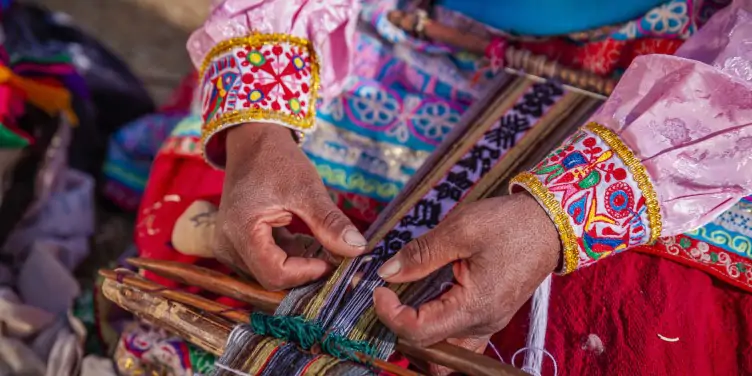We’re all aware of how important it is to look after our planet. There are many steps we can take to help reduce our impact on the environment.
But it’s easy to forget this when we’re on holiday.
Here are some tips to help you take positive steps towards travelling sustainably this year…
What does sustainable travel mean?
Tips for travelling sustainably
General sustainable travel tips
Eco-friendly accommodation tips
What does sustainable travel mean?
The term ‘sustainable travel’ is explained by The World Tourism Organisation as ‘tourism that takes full account of its current and future economic, social and environmental impacts, addressing the needs of visitors, the industry, the environment and host communities.’
Put simply, sustainable travel means travelling responsibly, thinking about the long-term and short-term needs of the area you’re visiting.
Adopting sustainable travel practices in small steps
The fact that you’re reading this already suggests that you’re doing something right.
When you start researching sustainable travel, it can feel overwhelming. We’re not necessarily saying you should do everything on this list, but trying to make a few smarter choices can really help.
If we all take a few steps each to manage our carbon footprint, it can have an enormous effect.
Tips for travelling sustainably
- Book direct flights whenever possible. Take-offs and landings are responsible for around 25% of a flight’s carbon emissions (according to a study by NASA). Try to book direct flights whenever possible. While this can be pricier, it has a less of an impact on the environment.
- Choose economy over first class. The class you choose has a bigger impact on your carbon footprint than you might think. First or business class comes with premium seats, including more space and lie-flat beds, which take up extra space and weight. This results in a greater carbon footprint—at least 2-3 times the emissions of economy travellers.
- Book e-tickets and check-in online. Choose e-boarding passes and flight tickets to minimize paper waste. It can also reduce the need for paper and energy consumption at airport kiosks, contributing to an overall greener travel experience. Besides, most airlines now allow you to check-in online, making travel easier than ever.
- Choose to drive or take a train instead. This is the most obvious way to reduce the carbon footprint flying creates. If you’re travelling short distances, think about driving or taking a train instead. The further you’re travelling, the more efficient flying becomes, so you should weigh up your options before coming to a decision.
- Pack lightly and don’t bring more than you need. Every item counts when it comes to fuel consumption. The heavier the plane, the more fuel it consumes, increasing your carbon footprint. By packing only what you need and keeping your carry-on luggage as light as possible, you contribute to a reduction in the plane’s overall weight. This, in turn, means lower fuel usage and fewer carbon emissions per passenger.
- Carbon offset your flights. If you do need to take a flight, you can pay a little extra to offset your carbon emissions. Some airlines have an option for this, or there are many charities who will put your money towards planting trees to help offset the carbon emitted by your flight.
- Compare different airlines and their fuel efficiency. Not all flights are created equal. Some airlines have made a partial or total switch to biofuels for their flights, which are much better for the environment. These biofuels come from sources like natural oils, seaweed, or even agricultural waste. AltAir Fuels, used by United Airlines, is estimated to cut at least 60% of greenhouse gas.
General sustainable travel tips
Plan your travel for off-peak seasons
Over-tourism can have a big impact on the environment, both locally and globally. Venice is a big example of this.
Trying to visit more ‘off the beaten path’ destinations can be rewarding from a travel perspective, as it’s nice to have a quiet beach to yourself or wander through streets without fighting crowds. You’ll also be helping to bring economy-boosting tourism to destinations that may have been previously overlooked.
The same goes for when you travel. If you want to visit a popular destination, think about travelling during the quieter off-season, or shoulder seasons, so you don’t add to the crowds. This will likely have the added bonus of lower prices and more accommodation choices, so it can be win-win!
Look for responsible tour operators
Choose tour companies that take sustainable travel seriously. There are plenty out there, and most advertise their environmentally friendly practices proudly, so they are easy to find. Before you book, ask a company if their trips help support or protect local wildlife, communities, or culture.
Slow travel
Slow travel is all about making time to explore a destination more sustainably. It is about enjoying your travel instead of cramming your itinerary with as many activities as possible. There are plenty of ways you can adopt a slow travel mindset on your next trip. For example, by changing your travel thoughts and becoming more environmentally responsible.
Things such as travelling out of season, using sustainable transport, such as buses and trains over carbon-intensive flights, choosing hiking and cycling trips and supporting local businesses are all parts of ‘slow travel’.
So it might be time to look outside of the travel guides and start thinking like a local! Make time, create a connection and fully engage with what your destination has to offer.
Top tip: if you want to try slow travel somewhere off the beaten path, why not plan a walking holiday? It allows you to explore the natural environment, while you save it.
Avoid plastic during travel
While you may be used to using reusable items at home, many of us can forget about them when we travel.
Take a reusable water bottle. If you’re in a country where you can’t drink tap water, buy a filter bottle. These can remove bacteria from most water sources, so you can safely refill and reuse without needing to buy plastic bottles.
Other reusable items you could pack include:
- Metal or silicone straws
- Multi-use razors
- Reusable coffee-cup
- Your own cutlery (for picnics/takeaways)
- Collapsible Tupperware
- Canvas bag for shopping
Be aware of irresponsible wildlife experiences
Wildlife travel can be an incredible experience, but it’s not always eco-friendly and can disturb the local wildlife.
Avoid tours that allow for up-close encounters, especially ones that allow you to touch or hold animals. Chances are these animals are being drugged, tamed or have had their behaviour altered in some other way. If you’re snorkeling or scuba diving, try to do it responsibly. Avoid overcrowding, stick to smaller groups, don’t touch or feed any of the animals or disturb the coral, and wear reef-friendly suncream.
For any wildlife experiences, look for tours that won’t disturb the flora and fauna, and keep yourself updated about the various issues surrounding wildlife tourism. Don’t avoid animals altogether, but do try to make ethical choices.
One last animal-related tip: avoid buying any souvenirs made with wildlife products. This includes everything from seashells to fur to ivory. If you can’t be sure an item was sustainably sourced, just say no!
Buy local
Many of the ‘local’ souvenirs you’ll find in resort areas are actually cheaply made imports. Not only does this make them totally inauthentic, but importing goods unnecessarily is also impacting the environment. Look for locally made handicrafts – or ask yourself if you really need a souvenir at all.
The same applies to food and drink. Avoid the beers, wines, and spirits that have been imported from overseas, and instead try the local beverages. Although the imported goods might be more familiar, it’s much more immersive to experience local produce.
When dining, try to find restaurants that source their ingredients locally. All these steps will help not just the environment, but local communities and economies as well.
Eco-friendly accommodation tips
- Look for ‘green’ hotels. Try to choose eco-friendly hotels. There are many certification programs around the world that give a ‘seal of approval’ to hotels that are making efforts to be more sustainable. These include Green Globe, the Green Building Council (USA), EarthCheck (Australia), Rainforest Alliance (Latin America, Caribbean), and Green Tourism Business Scheme (UK). Some countries also have their own programs, so do a little bit more research before making your choice.
- Hang up your towels to dry. This is a small step, but it can have a huge impact. If every traveller re-used their towel a few times, this could have an enormous impact on the water and energy used on laundry every day. If you notice that your hotel’s housekeeping staff are changing the towels and/or bed linen daily, think about leaving the ‘do not disturb’ sign on the door when you go out.
- Check everything is off before going out. It can be all too tempting to leave the air-con blasting in your hotel all day, so that you come home to a nice cold room. But this isn’t doing the environment any favours. Turn off all lights, electrics, air-con and heating before going out for the day.
- Leave eco-friendly feedback and suggestions. Many hotels have a feedback or comment form they ask guests to fill in. If you notice anything they could be doing better – such as recycling, allowing guests to reuse towels, or stocking more local food – let the hotel know! No one will change if they don’t realise there’s a demand for it.





